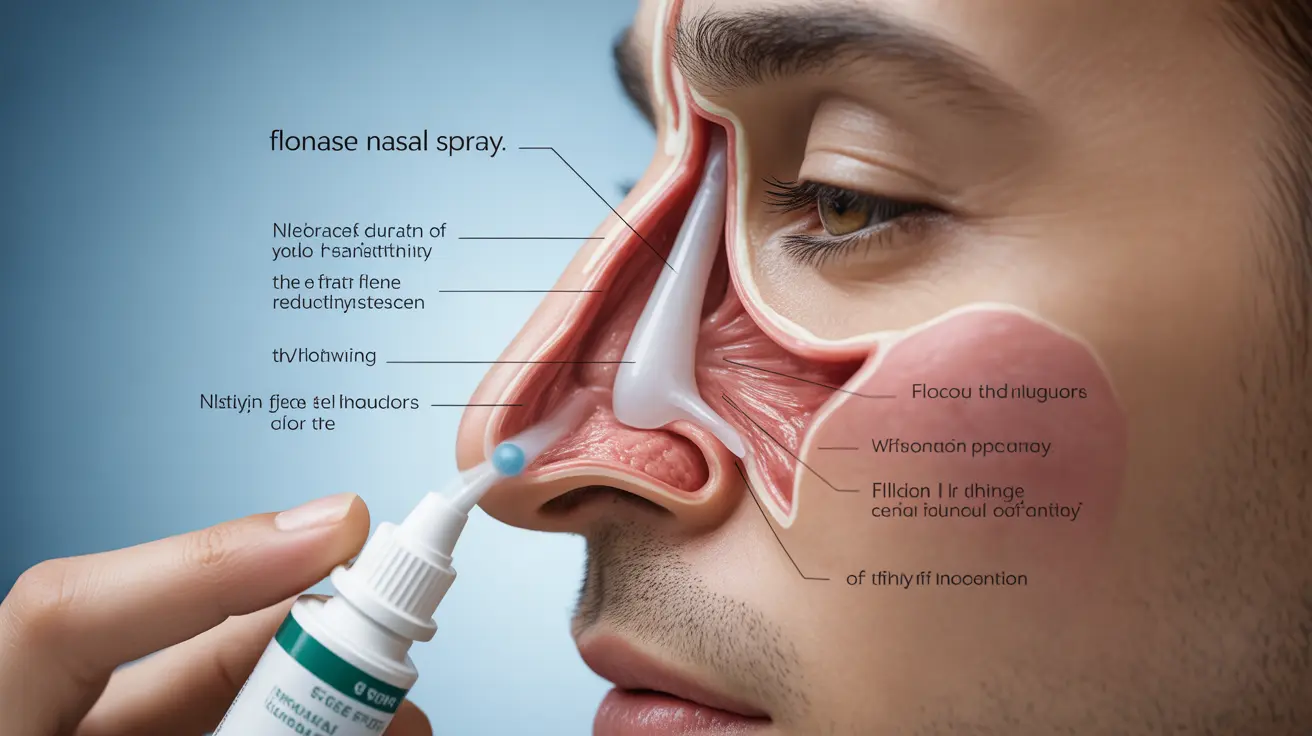If you're wondering "is Flonase a steroid?" the answer is yes – Flonase contains fluticasone propionate, which belongs to a class of medications called corticosteroids. This nasal spray has become a popular choice for managing allergies and nasal symptoms, but understanding its nature as a steroid medication is crucial for safe and effective use.
In this comprehensive guide, we'll explore how Flonase works, its proper usage, potential side effects, and important safety considerations to help you make informed decisions about your allergy treatment.
How Flonase Works as a Steroid Nasal Spray
Flonase works by delivering a synthetic corticosteroid directly to the nasal passages. This medication helps reduce inflammation in the nasal tissues, providing relief from allergy symptoms such as:
- Nasal congestion
- Runny nose
- Sneezing
- Itchy nose
- Post-nasal drip
The steroid component works by suppressing the activity of certain inflammatory cells and reducing the production of substances that cause allergic reactions. This targeted approach helps manage symptoms while minimizing systemic effects on the body.
Common Side Effects and Safety Considerations
As with any medication, Flonase can cause certain side effects. Most are mild and tend to decrease with continued use. Common side effects include:
- Nasal irritation or burning
- Nosebleeds
- Headache
- Sore throat
- Unpleasant taste or smell
Managing Side Effects
To minimize the risk of side effects, it's essential to use Flonase exactly as directed. Proper technique includes:
- Gently cleaning your nose before use
- Keeping your head tilted slightly forward
- Aiming the spray away from the nasal septum
- Using the prescribed number of sprays
Long-term Use and Safety
While Flonase is generally considered safe for long-term use when properly administered, regular monitoring by a healthcare provider is recommended. Some potential concerns with extended use include:
- Changes in the nasal mucosa
- Increased risk of infections
- Potential impact on growth in children
- Rare cases of nasal septum perforation
Special Precautions and Contraindications
Certain individuals should exercise caution or avoid using Flonase altogether. These include people with:
- Recent nasal surgery or injury
- Tuberculosis
- Untreated fungal, bacterial, or viral infections
- History of severe nasal bleeding
- Compromised immune systems
Frequently Asked Questions
Is Flonase a steroid nasal spray and how does it work for allergies?
Yes, Flonase is a steroid nasal spray containing fluticasone propionate. It works by reducing inflammation in the nasal passages and blocking chemicals that trigger allergic responses, effectively relieving allergy symptoms.
What are the common side effects of using Flonase nasal spray?
Common side effects include nasal irritation, nosebleeds, headache, and throat irritation. Most side effects are mild and typically diminish with continued use.
Can long-term use of Flonase cause serious health problems or complications?
While generally safe for long-term use, potential complications can include changes in nasal tissue, increased infection risk, and rarely, nasal septum perforation. Regular medical supervision is recommended for extended use.
How should I properly use Flonase nasal spray to minimize side effects?
Use Flonase as directed: clean your nose first, keep your head tilted slightly forward, aim away from the septum, and don't exceed the recommended daily dose. Proper technique helps minimize side effects.
Who should avoid using Flonase or use it with caution due to health reasons?
People with recent nasal surgery, untreated infections, severe nosebleeds, or compromised immune systems should consult their healthcare provider before using Flonase. Children and pregnant women should use it under medical supervision.




